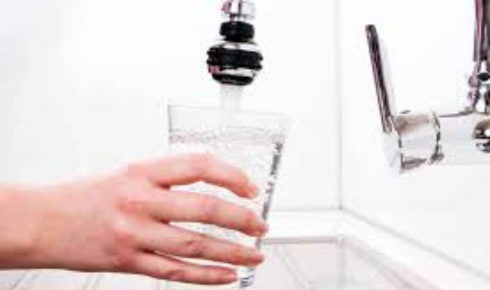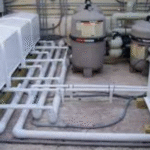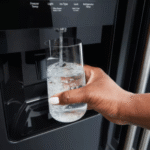There’s something about Texas water — the story changes from city to city, even street to street. Some people swear by their tap, others wouldn’t touch it without running it through three different filters. Between hard water buildup, chlorine taste, and those faint mineral aftertastes, it’s no wonder Texans are getting serious about water quality. That’s where alkaline water filters come in — a quiet little revolution happening under kitchen sinks and in home filtration systems across the Lone Star State.
A Shift Toward Healthier Hydration
For years, filtered water simply meant “cleaner.” Remove the chlorine, get rid of sediment, maybe take out a few metals — and that was that. But lately, hydration has gone deeper than just removing the bad stuff. People want balance. They’re asking: how can water actually benefit my health instead of just not harming it?
That’s the question driving the rise of alkaline water filter Texas installations. These systems do more than purify — they raise the pH of water, making it slightly alkaline, often between 8 and 9.5. The result? Water that not only tastes smoother but may also help neutralize acidity in the body, supporting better hydration and digestion.
The Science Behind the Buzz
It’s not just marketing. Alkaline water has a distinct chemistry. It’s typically rich in minerals like calcium, magnesium, and potassium — elements your body already loves. The concept is simple: modern diets tend to be acidic (think coffee, red meat, processed foods). Consuming more alkaline substances can help bring the body’s pH closer to its ideal balance.
Now, there’s debate in the medical world about how much difference alkaline water makes — and that’s fair. But talk to people who’ve switched, and you’ll hear stories about feeling more refreshed, less bloated, and more energized. Whether it’s placebo or physiology, the results are hard to ignore.
Finding Balance: What pH Means for You
Let’s pause for a quick science refresher. pH stands for “potential of hydrogen,” and it measures how acidic or alkaline something is. Regular tap water typically sits around 7 — perfectly neutral. But when the balance shifts slightly upward, you get what’s known as pH balanced water filter output.
This balance isn’t about making water “super alkaline” or turning your kitchen into a chemistry lab. It’s about consistency — removing contaminants that throw your body off and restoring a mineral-rich equilibrium that feels natural to drink. Think of it as a reset button for your daily hydration.
Taste Matters More Than You’d Think
Anyone who’s tried both regular filtered water and alkaline water can tell you — the taste alone is worth the switch. Alkaline water tends to be smoother, less metallic, and often has a subtle sweetness. It’s the kind of taste that makes you want to drink more, which in itself can be a major health win.
It’s also perfect for Texas households with coffee lovers and home chefs. Coffee brewed with alkaline water often has a rounder, richer flavor, while vegetables cooked in it retain more color and crispness. Even your ice cubes come out clearer.
Why Texans Are Leading the Charge
Texas water challenges aren’t new — the mix of groundwater and municipal sources can vary wildly. Hard water, in particular, is a constant battle. Alkaline systems not only help balance pH but also reduce scaling and mineral buildup in appliances. So in a way, it’s not just about health; it’s about home maintenance, too.
Plus, Texans value independence — and there’s something satisfying about taking control of your own water quality. Instead of relying on bottled water or expensive deliveries, homeowners are investing in alkaline drinking water system setups that provide endless clean, mineral-rich water straight from the tap.
The Long-Term Perks You Don’t See on the Label
What most people don’t realize is how these systems affect daily life beyond just drinking water. Skin feels softer after showers. Laundry doesn’t come out stiff. Even pets seem to drink more enthusiastically.
And because many alkaline systems use advanced multi-stage filtration — removing heavy metals, chlorine, VOCs, and other impurities — they create an environment where your body isn’t constantly fighting against unseen chemical stressors. In simple terms, you feel the difference even if you can’t measure it.
Choosing the Right System for Your Home
Not all alkaline filters are created equal. Some simply add minerals, others use ionization technology to alter water’s molecular structure. The key is to pick one that matches your household size, plumbing, and maintenance preferences. Whole-house systems are fantastic for consistent water quality throughout, while under-sink versions are ideal for drinking and cooking.
Maintenance is surprisingly low. Most filters last six months to a year, depending on usage and local water conditions. A quick cartridge swap and you’re back to enjoying crisp, balanced hydration.
A Lifestyle, Not a Trend
What’s interesting about the alkaline water movement is how unflashy it is. It’s not about chasing wellness fads or buying into buzzwords. It’s about making a simple, daily habit a little better.
In Texas — where the summers are long and the water sometimes unpredictable — that matters. Families want hydration that feels good, tastes right, and supports long-term health without fuss. Alkaline systems deliver exactly that: everyday wellness, built right into your sink.
Wrapping It Up: Small Change, Big Difference
At the end of the day, water is personal. It’s something you consume more than anything else in your life. So, improving it isn’t just about following a trend — it’s about self-care in its purest form.
If you’ve ever wondered why your tap water doesn’t feel quite right or why hydration still feels like a chore, it might be time to look deeper. Because when you taste truly balanced, mineral-rich water for the first time, you realize what you’ve been missing.
Whether it’s for flavor, health, or just peace of mind — the case for alkaline water is as clear as the water itself.



